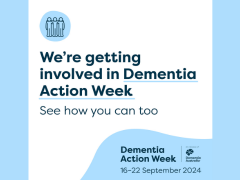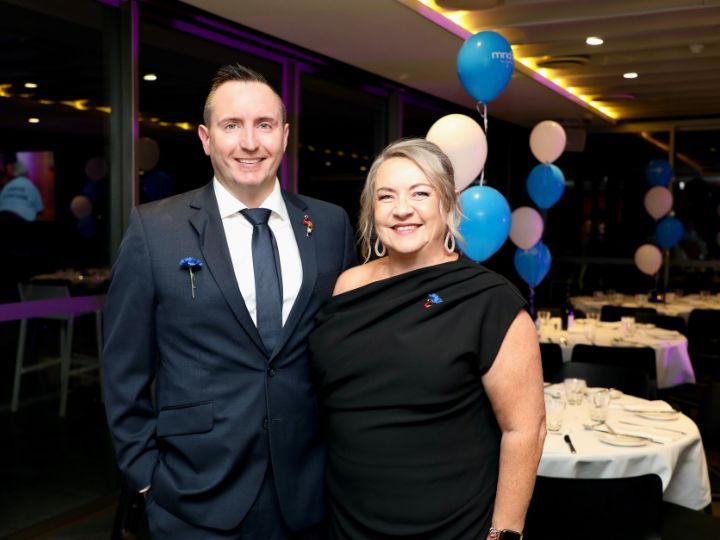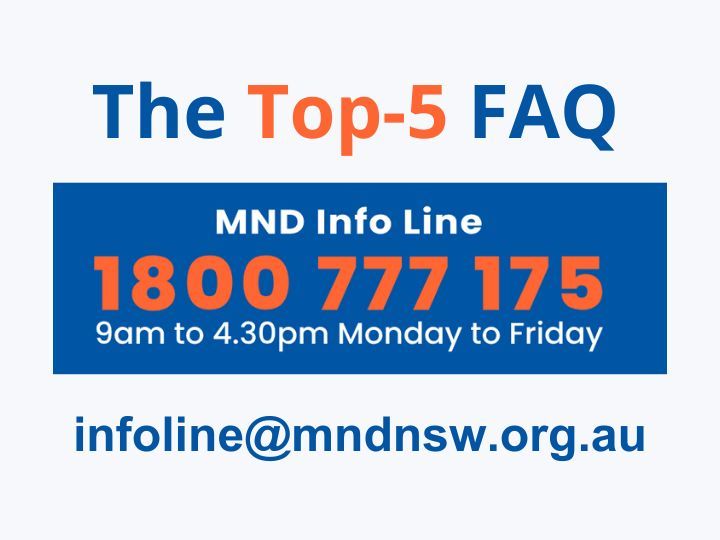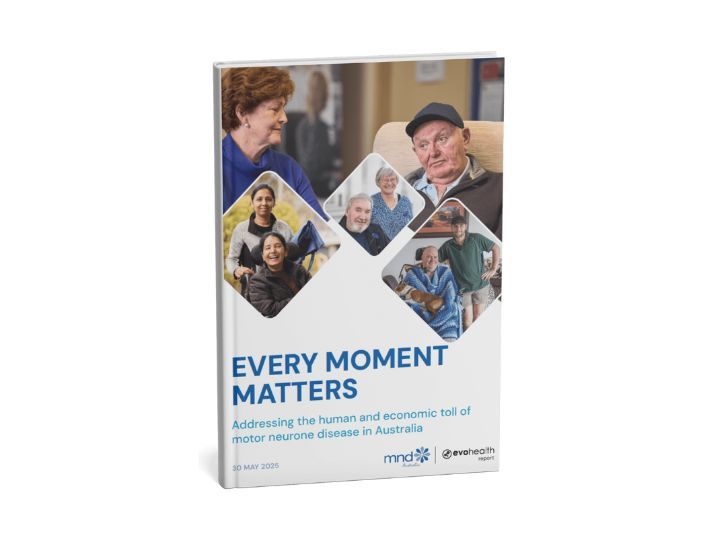We’re getting involved in Dementia Action Week (16-22 September 2024), to help raise awareness about MND with Frontotemporal Dementia or MND/FTD. Dementia Action Week is a good time to share with you information about MND/FTD and the support available.
What is MND/FTD?
According to MND Australia, up to 15% of people living with MND will experience changes to the frontal and temporal lobes of the brain as a direct result of MND. This is called MND with Frontotemporal Dementia, or MND/FTD.
The frontal and temporal lobes of the brain control things like mood, social behaviour, attention, judgment and self-control.
For many people who receive a diagnosis of MND/FTD, changes in cognition and behaviour precede the motor symptoms of MND, sometimes by a number of years.
It is important to be aware of the signs of cognitive change and to seek guidance and assessment from your health care team.
What are the possible signs of cognition, language and behaviour change?
Cognition
Changes to cognition relates to intellectual abilities and thinking skills, and may include:
- Difficulty paying attention and concentrating.
- Changes in memory and the ability to recall information.
- Changes in the ability to learn new things, like a new driving route or cooking recipe.
- Difficultly adapting to change in routine.
- Changes in social cognition skills and difficultly with emotional recognition or interacting in a social environment.
Language
Sometimes changes in cognition can cause changes to language and speech, including:
- Difficulty finding the right word to say.
- Requiring more effort and time to speak.
- Unusual speech patterns, using odd words or repeating words.
- Difficulty naming objects.
Behaviour
Changes in behaviour may include:
- Feeling apathetic or losing interest in daily tasks or things otherwise enjoyed.
- Being impulsive or adopting repetitive behaviours.
- Changes to food preferences, like eating in a particular way or only eating one type of food.
Who can help?
A general practitioner (GP), neurologist or specialist MND clinic can arrange screening and help to diagnose cognitive and behaviour change.
A neuropsychologist can also diagnose changes in cognition and behaviour, and they can help you and your family develop practical strategies to mange symptoms.
If you are aged 65 and older, your GP may refer you to a geriatrician. A geriatrician is a medical professional who can specialise in dementia and cognitive changes and other particular health areas including mobility, incontinence and nutrition, amongst others.
Other support from your health team may include:
- Speech Therapist/Pathologist can advise you on ways to communicate
- Behaviour Support Practitioner (BSP) can support with implementing strategies to manage difficult behaviours, including changes in eating habits
- Occupational Therapist can support you to make changes to the home environment to help with daily routines and for safety
- Psychologist can support with managing emotional and behavioural issues and implementing strategies to continue to participate in everyday life.
Support from MND NSW
At MND NSW we work with people who have a diagnosis of Motor Neurone Disease with Frontotemporal Dementia (MND/FTD) and their families. We support by providing information about MND/FTD and by helping people connect with the supports and services they need.
Contact us on 1800 777 175 or
Support from Dementia Australia
Dementia Australia has a range of resources and support available, including the National Dementia Helpline 1800 100 500 or visit www.dementia.org.au
Find out more
- Dementia Action Week | Dementia Australia
- Cognitive and behaviour change in MND (mndnsw.org.au)
- Emotional and Behavioural Changes (gen7) (mndhub.org.au)
- Cognition, Thinking & Behaviour in MND | MND Australia | MND Australia
- Booklet about Changes to thinking and behaviour with MND (mndassociation.org)




